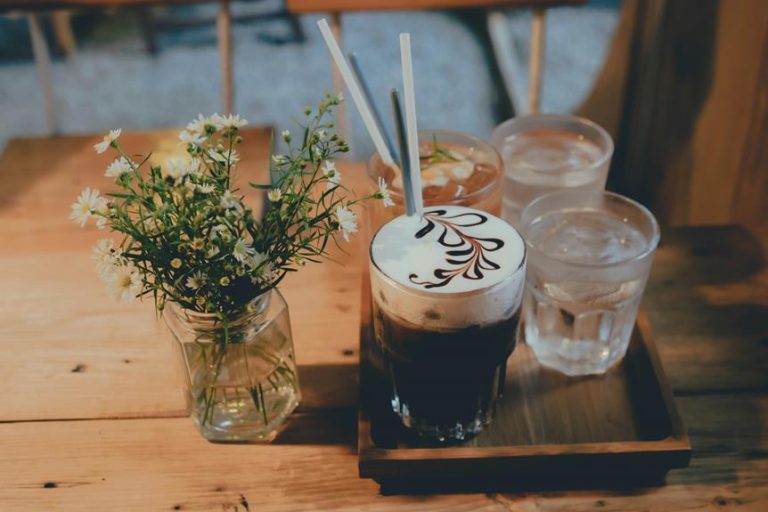Understanding Health: Can You Drink Coffee With Gallbladder Problems?

When it comes to managing gallbladder problems, we often find ourselves questioning the role of diet, particularly the impact of coffee. While some might feel that a daily cup offers comfort and energy, we need to evaluate how this popular beverage can affect our digestive system. It's essential for us to weigh the potential benefits against the risks, especially if we're experiencing symptoms like bloating or discomfort. So, what should we really know about coffee and gallbladder health? Let's explore the nuances together.
Overview of Gallbladder Function
The gallbladder often plays an essential role in our digestive system, so understanding its function is important for overall health.
This small organ, located beneath the liver, stores and concentrates bile produced by the liver.
Bile aids in the digestion of fats, highlighting the significance of gallbladder anatomy and bile production in maintaining our digestive efficiency and overall well-being.
Common Gallbladder Problems
Understanding how the gallbladder functions helps us recognize the common problems that can arise with this small but significant organ.
Many of us may experience gallbladder diseases, with gallstone formation being the most prevalent issue.
These stones can block bile flow, leading to pain and digestive discomfort.
Impact of Diet on Gallbladder Health
Diet plays an essential role in maintaining gallbladder health, influencing both the formation of gallstones and the overall function of this important organ.
We should focus on healthy dietary fats, increase our fiber intake, and consider meal timing.
Staying hydrated also supports nutrient absorption while being mindful of food sensitivities helps us avoid discomfort, ultimately promoting a healthier gallbladder.
Coffee's Chemical Composition
When we think about coffee, it's important to recognize its unique chemical makeup, especially caffeine and antioxidants.
Caffeine can greatly influence our digestion, potentially affecting gallbladder function.
Additionally, the antioxidants in coffee may offer protective benefits, making it essential for us to examine how these components interact with our health.
Caffeine's Effect on Digestion
Many of us rely on coffee to kickstart our day, but its impact on digestion, particularly concerning gallbladder health, is worth exploring.
Caffeine metabolism can stimulate digestive enzymes, enhancing our digestion. However, for those with gallbladder issues, this stimulation might lead to discomfort.
It's essential to listen to our bodies and consider how caffeine affects our unique digestive processes.
Antioxidants in Coffee
What makes coffee so appealing beyond its rich aroma and bold flavor? One key factor is its antioxidant properties.
Research shows that these antioxidants can offer significant coffee benefits, supporting our overall health by combating oxidative stress.
How Coffee Affects Digestion
Although coffee is a beloved beverage for many of us, its impact on digestion is a subject worth exploring.
Research shows that coffee consumption can stimulate the production of digestive enzymes, aiding our digestive processes.
However, it's essential to recognize that individual reactions may vary, and we should pay attention to how our bodies respond to coffee when it comes to digestion.
Potential Risks of Drinking Coffee
While coffee can enhance digestive enzyme production, it also carries potential risks that we should be aware of.
These include:
- Increased caffeine sensitivity, which may lead to jitters or anxiety.
- Potential digestive intolerance, causing discomfort or bloating.
- The risk of aggravating gallbladder issues, especially in sensitive individuals.
Understanding these risks helps us make informed choices about our coffee consumption.
Signs to Monitor After Coffee
After enjoying a cup of coffee, we should pay attention to any symptoms of discomfort that might arise.
Digestive changes, such as bloating or unusual bowel movements, can signal how our bodies are reacting to caffeine.
Symptoms of Discomfort
When enjoying our morning cup of coffee, we mightn't always consider the potential signs of discomfort that could arise afterward.
It's important to monitor for symptoms like:
- Biliary colic, which may feel like sharp abdominal pain.
- Nausea or vomiting, indicating irritation.
- Changes in bowel habits, possibly linked to gallstone formation.
Being aware of these signs can help us manage our health effectively.
Digestive Changes Observed
Many of us experience noticeable digestive changes after enjoying our coffee, and it's essential to pay attention to these signs.
If we notice increased bloating, gas, or discomfort, it could indicate gallbladder inflammation or issues with bile production.
Monitoring our reactions helps us understand how coffee affects our digestion, guiding us in making informed choices that support our overall health.
Alternatives to Coffee
For those of us looking to reduce or eliminate coffee from our daily routine, exploring alternatives can be both exciting and beneficial.
Here are some great options to contemplate:
- Herbal teas like chamomile or peppermint.
- Dandelion coffee or chicory root for a rich flavor.
- Turmeric lattes or matcha alternatives for a healthy twist.
These choices can enhance our wellness while satisfying our cravings!
Expert Recommendations and Tips
Steering coffee consumption can be challenging, especially for those with gallbladder issues. We recommend making dietary adjustments to minimize gallbladder inflammation. Here's a quick guide to help:
| Recommendation | Tips | Considerations |
|---|---|---|
| Limit caffeine | Opt for decaf or tea | Monitor symptoms |
| Stay hydrated | Drink water regularly | Avoid high-fat meals |
| Eat smaller meals | Spread meals throughout day | Focus on lean proteins |
Conclusion
In summary, while coffee can provide digestive benefits, we must be cautious if we have gallbladder issues. It's essential to listen to our bodies and monitor any discomfort after consuming coffee. Consulting a healthcare professional can help us make informed dietary choices tailored to our needs. By staying aware of our symptoms and exploring alternatives, we can better manage our gallbladder health and enjoy a balanced lifestyle.






